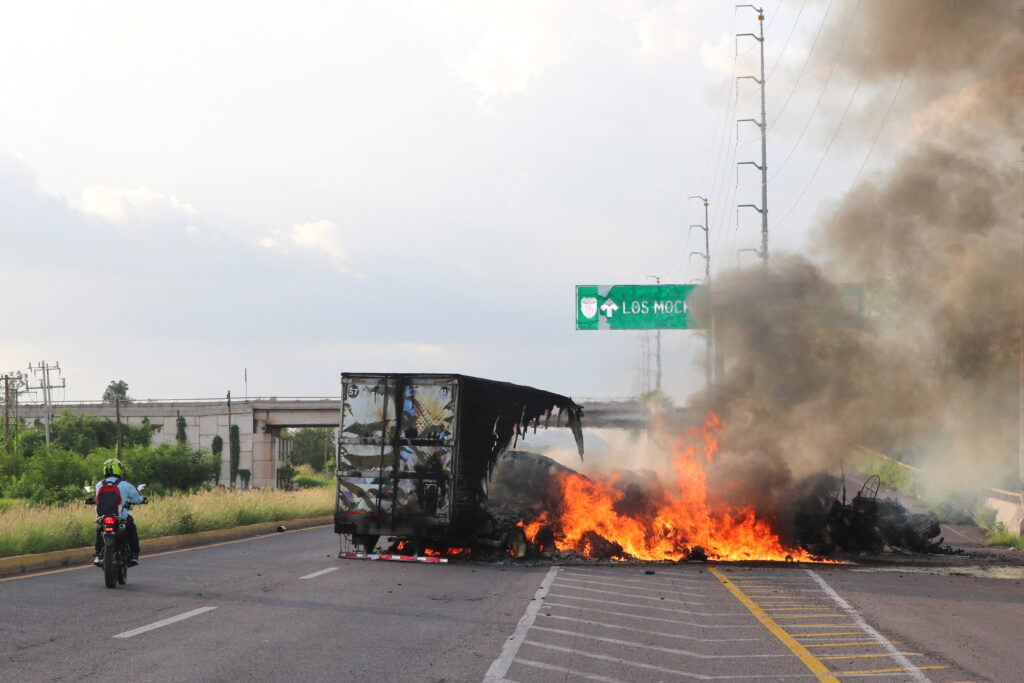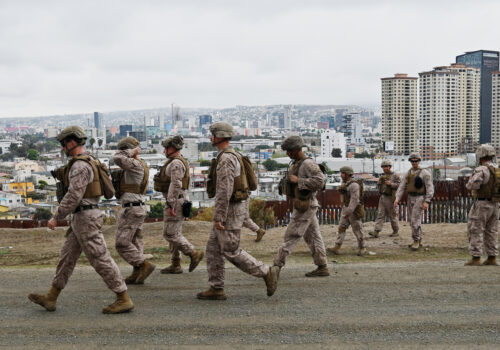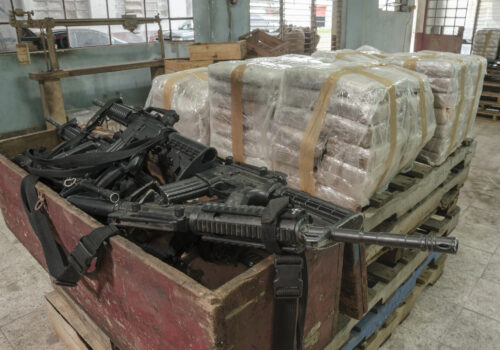In the first six months of this year, the White House took several notable steps to address the threat from cartels in Mexico. In February, the Trump administration designated eight transnational criminal organizations in Latin America as “foreign terrorist organizations.” In May, Mexican President Claudia Sheinbaum rejected US President Donald Trump’s offer to send troops into Mexico to fight these organizations. Then in June, the United States placed sanctions on one of the designated groups: the Jalisco New Generation Cartel.
The terrorist designations are important; they are an escalatory change and an acknowledgment of the national security threat that these organizations represent. This new designation differs from the historical classification of these groups as simply criminal organizations, which denotes an ability for typical justice systems to handle them.
At the same time, the new designations raise a question as the United States reflects on its more than two-decade-long war on terrorism: What should be done about newly designated terrorist groups operating just across the US southern border? With four states sharing a land border with Mexico, and trade revenues between the United States and Mexico that surpassed $800 billion in 2024, ignoring this labeled threat while it grows would be at best a failure, and at worst negligence.
As Sheinbaum made clear on May 3, Mexico is not willing to allow foreign militaries to act on its sovereign territory. This reality, however, does not eliminate the ability for the United States to take steps to counter these organizations; it simply means that it must accomplish this task with brains rather than brawn.
What’s needed next are smart US investments and support to improve the odds of countering these threats along the southern border through US-Mexican cooperation. By acknowledging that the cartels are economic-based organizations, rather than ideology-based organizations such as those targeted in the war on terrorism, several avenues are open to the United States to counter the threat they pose.
Economic investment in recruitment-prone regions
The first issue is stemming recruitment. The adage that “idle hands are the devil’s workshop” applies far beyond unruly children—it also applies to regions vulnerable to cartel recruitment. As individuals struggle to survive and provide for their families, regions of limited economic resources provide an excellent recruitment base for these organizations even outside circles inclined to criminal activities. This reality can create a cycle: increasing crime in the region and reducing the likelihood of economic investment and legitimate sources of income, as businesses and individuals see increasing investment risk.
Instead of relying on private investors to shoulder the risk, the US government could step in with targeted economic investments—reducing recruitment incentives while potentially generating long-term returns. It should be made clear that this investment does not need to be, and arguably shouldn’t be, aid or grants. The US Development Finance Corporation, for example, could use loans as well as other financial tools that could boost local economies in Mexico while providing returns to the United States.
There is precedent for this approach: In the 1990s, the “broken windows” hypothesis was tested in New York City. Economic revitalization reduced poverty and significantly reduced some crime rates when coupled with stricter police enforcement (e.g., felony arrest rates). As economic opportunity increased along with the odds of arrest, the “pull factor” of criminal behavior and organizations decreased. Increasing the willingness to invest economically and providing legitimate sources of income directly could reduce the attraction to crime.
Infrastructure investment throughout high-risk regions
The second issue is breaking cartels’ chokehold on specific areas. Areas with substandard infrastructure—such as roads, transportation services, healthcare, education, and security—are where criminal organizations entrench themselves. As criminal organizations identify a gap in essential services, they fill this gap and replace the government, gaining the support of the local populace and further insulating them from government intervention. Even in areas where the willingness of local law enforcement and governments to counter these organizations remains high, limited wherewithal can undercut their ability to pursue criminals and bring them to justice.
The United States has two distinct opportunities in this realm. Washington can incentivize US companies to conduct infrastructure-building projects in these regions, providing jobs and contracts to US businesses. The United States can also invest resources in projects in these regions with capital and loans, increasing the job opportunities for local individuals and businesses while providing a future return to the United States.
Studies of India’s rural transportation infrastructure projects, for instance, have shown that if the benefits are evenly distributed throughout a community, the building of new roads may help reduce crime rates. Such projects also help expand security programs while increasing economic opportunity; individuals can travel for economic opportunities more freely while criminals are within easier reach of security forces.
Training, expertise, and equipment
The third issue is ensuring a strong counterforce to the cartels. After more than two decades of combating terrorist groups, the US military has hard-earned experience, tested procedures, and proven capabilities that can be shared with partner nations. These resources can be leveraged—without impinging on a partner’s national sovereignty.
In an advisory capacity, the US military can offer to share its knowledge with Mexican forces that want to improve the readiness and survivability of the country’s security forces. In fact, the basis for this approach already exists with the 1st Security Force Assistance Brigade, an organization with a history of deployment to Latin America, increasing partner nations’ organizational structures and capacities. In addition to training and sharing knowledge, the US military can also provide defense trade and arms transfers to partner nations, including through foreign military sales, excess defense articles programs, and direct commercial sales.
As recently as May of this year, the United States provided Colombia with decommissioned Island-class patrol boats to enhance its security while divesting unused military equipment from the United States. These vessels are a critical asset for Colombia to counter illicit activity over maritime domains quickly and cheaply. Simultaneously, the 1st Security Force Assistance Brigade has conducted training and provided advice to enhance Colombia’s counternarcotics operations. If the US military increases its coordination and training with Mexican forces, with the Mexican government’s approval, it could help to keep cartels in check.
Timely action
Now that these transnational criminal organizations have been officially recognized as US national security threats, time is of the essence. Without timely, appropriate action, their influence could expand. The best, most sustainable way to counter their growth is a coordinated use of national power to weaken these groups without resorting to US military intervention in Mexico.
But a failure to take additional, appropriate action to combat these terrorist groups could render the terrorist designations as mere saber-rattling.
Aaron Kolleda is a major for the US Army and is currently a visiting fellow at the Atlantic Council’s Adrienne Arsht Latin America Center.
The views in this article are personal and do not reflect the position of the US Department of Defense or the US Department of the Army.
Further reading
Wed, Mar 5, 2025
How US military action against drug cartels in Mexico could unfold
New Atlanticist By
A potential four-part scenario can be constructed by examining recent developments in the US-Mexico relationship and US counterterrorism efforts.
Mon, Mar 3, 2025
To tackle China-enabled drug cartels in Mexico, Trump will need military authorization
New Atlanticist By
An authorization to use military force against Mexican drug cartels would unite various government agencies in a coordinated effort to combat a major threat to US national security.
Fri, Jan 31, 2025
Mexican cartels as foreign terrorist organizations: Impact on US businesses
Econographics By Samantha Sultoon
Should the Trump administration choose to use the FTO designation on major Mexican cartels, it may have impacts that have not been fully evaluated.
Image: A man rides his motorcycle past a vehicle set on fire by cartel gunmen during clashes with security forces, in Culiacan, Mexico August 29, 2024. Reuters/Jesus Bustamante.



